Palestinian prisoners threaten hunger strike over Israeli coronavirus response
Palestinian prisoners in Israel have threatened to go on an open-ended hunger strike in protest at a ban on meeting attorneys, lack of protective measures by guards during searches in their cells, and denial of medical protection gear in the wake of rising cases of COVID-19, the disease caused by the highly contagious new coronavirus, in the Occupied Territories.
An unnamed source close to Palestinian prisoners told the Israeli English-language Haaretz newspaper that prisoners affiliated with Hamas Islamic resistance movement returned their breakfast and lunch servings on Thursday, while those affiliated with Fatah returned some meals during the weekend. They plan to launch a full hunger strike at the beginning of next month.
“Prisoners are enclosed in their cells,” the source said, adding that Israeli wardens “who deliver food [to Palestinian prisoners] are walking around, handing it out with no gloves or masks….”
Palestinian prisoners have not been tested for the coronavirus, as Israeli Health Ministry regulations in place call for a test only in cases where there exist both exposure to a confirmed patient and symptoms of COVID-19, which include fever, cough, shortness of breath.
Meanwhile, a high-ranking member of Hamas says Israeli authorities are denying Palestinian prisoners medical protection gear.
Wasfi Kabha said the Israel Prison Service has ordered the inmates to use their socks in place of masks in a blatant disregard for their safety and lives.
“Given the overcrowding in Israeli detention centers and the absence of cleaning products at the prison canteens, Palestinian detainees are now more vulnerable in light of the coronavirus outbreak,” he commented.
Kabha, a former Palestinian Minister of Prisoners' Affairs, further noted that most of the diseases afflicting Palestinian prisoners inside Israeli jails usually result from the lack of healthcare and hygiene supplies.
There is no regular cleaning of the cells, let alone their disinfection, he added.
The former Palestinian minister said there are 1,000 prisoners in Israeli jails with health problems, including 28 suffering from chronic diseases. This means they are at a higher contraction risk.
Kabha called on concerned local and international human rights organizations to pressure Israeli authorities to take all the necessary preventive measures that would ensure the safety of the Palestinian prisoners in the time of the pandemic.
In the besieged Gaza Strip, Palestinian officials have announced the first two cases of COVID-19.
Deputy Health Minister Youssef Abulreesh said late on Saturday the two patients had returned from Pakistan via Gaza's Rafah border with neighboring Egypt on Thursday.
The pair exhibited symptoms of the illness, which include a dry cough and high fever, Abulreesh told a news conference.
He added that the two were quarantined upon arrival and are now in a field hospital in the border town of Rafah.
Abulreesh urged Gaza's nearly two million residents to take precautionary measures and to practice social distancing by staying home.
VIDEO | 100+ days of ceasefire: Israeli killing of Palestinians continue amid Intl. silence and impunity
VIDEO | EU split over new Iran sanctions amid claims of double standards
VIDEO | Gaza’s silent plague: Mysterious virus claims lives amidst total medical collapse
VIDEO | Growing transatlantic rift
VIDEO | Trump's Iran blunders
Senior cmdr. strongly warns Trump following rhetorical remarks concerning Leader
EU Parliament halts US trade deal after Trump tariff threat
VIDEO | An unchecked presidency


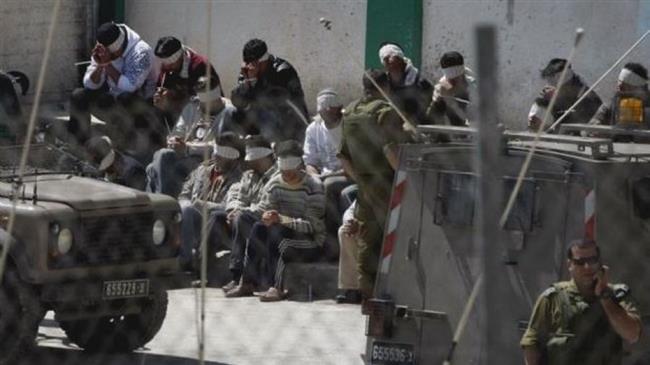



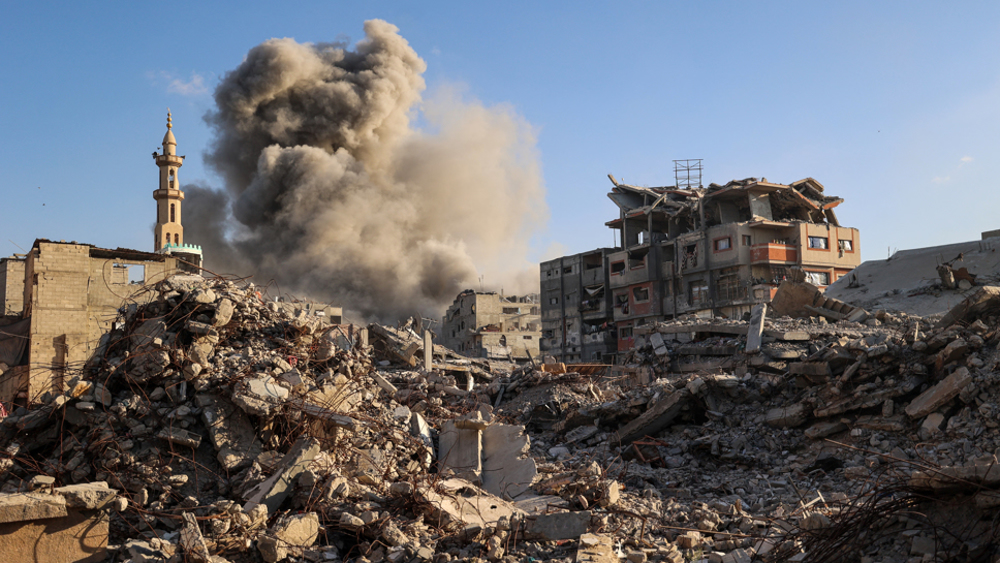
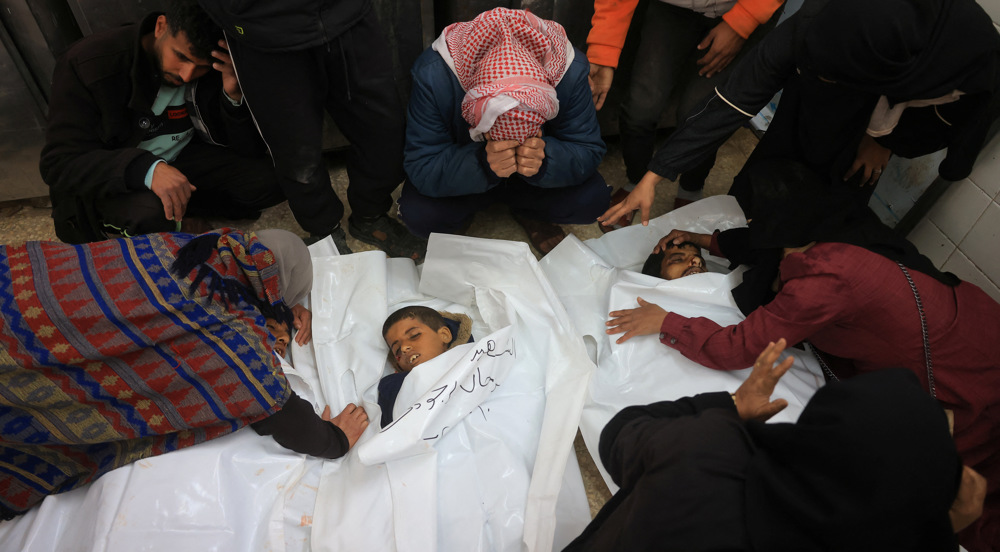
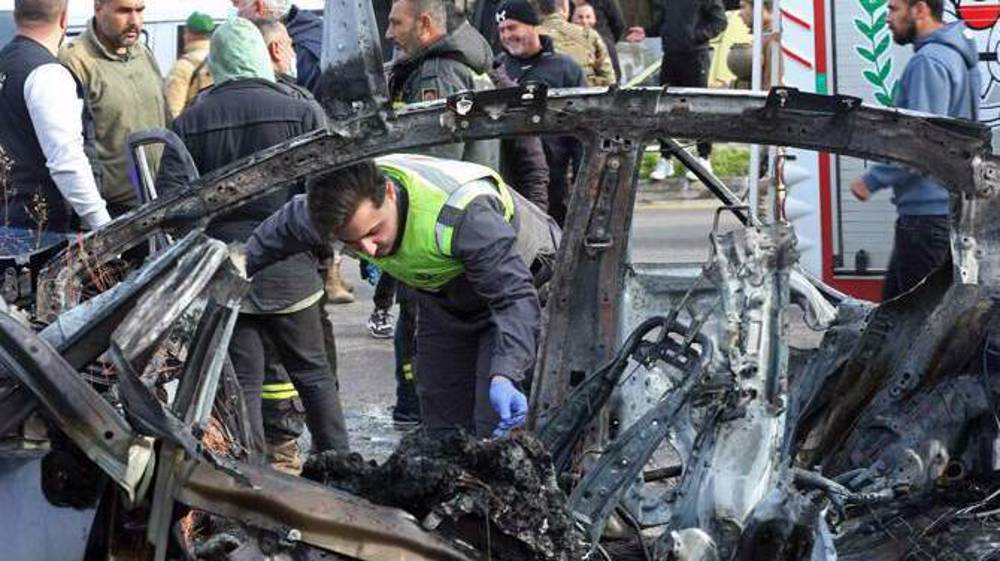



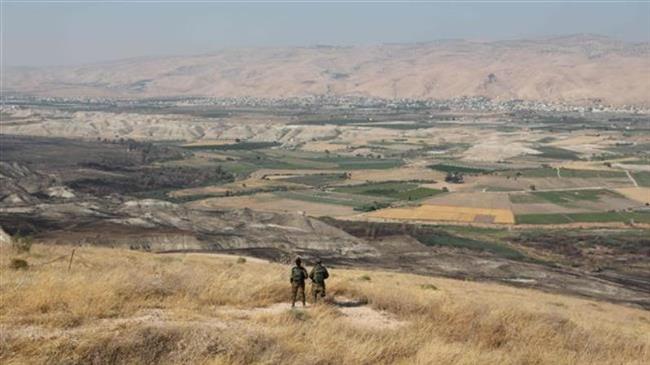
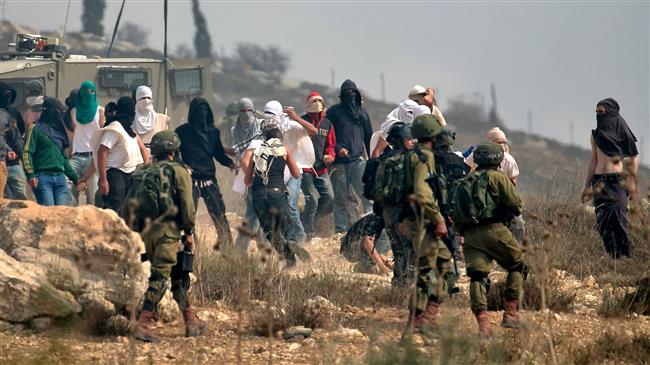
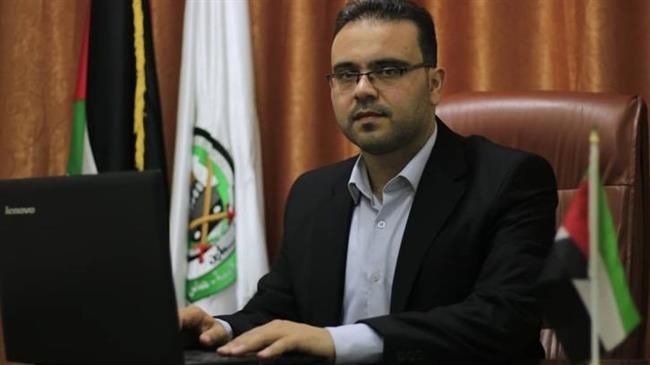


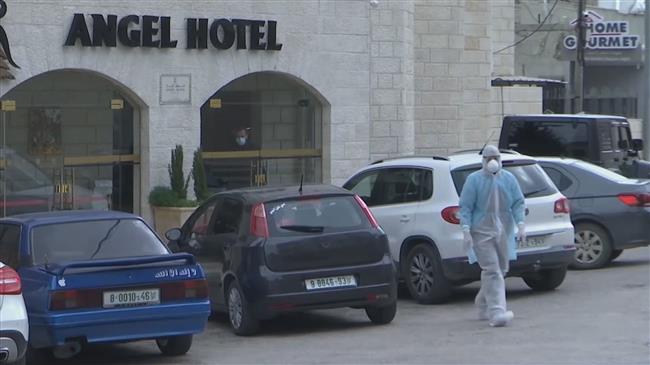

 This makes it easy to access the Press TV website
This makes it easy to access the Press TV website